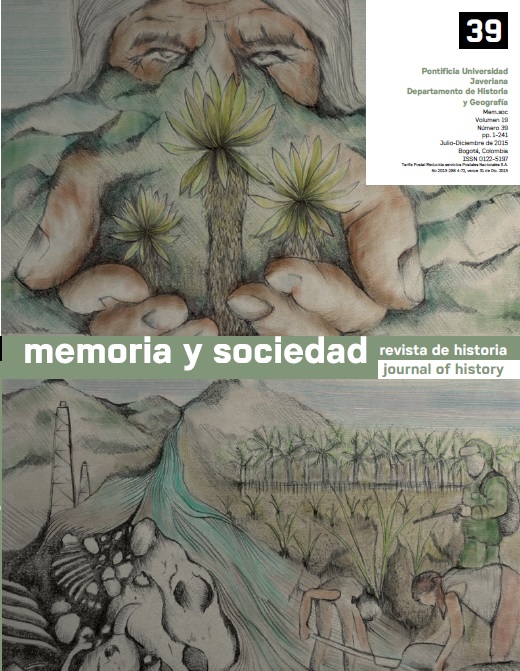Abstract
What are the connections that articulate paramilitarism with oil palm cultivation? This is the question that guides this text, which is the result of a documentary research on the dispossession found in several rural areas of the country. However, this reality is sometimes difficult to prove because of the conditions of impunity, corruption and war-continuity. For doing this, the study focused on two regions of the country: the Orinoquia, with emphasis on the departments of Meta and Casanare, and Choco. The investigation identified stages and cycles of paramilitary intervention with severe impacts on the preservation of human rights, producing –among others– dispossession and communities exile. Moreover, these circumstances are crossed with legalized economic dynamics, such as oil palm projects and other strategies to dominate and plunder rural people, especially peasants and people of African descent.The journal Memoria y Sociedad is registered under a Creative Commons Attribution 4.0 International Public License. Thus, this work may be reproduced, distributed, and publicly shared in digital format, as long as the names of the authors and Pontificia Universidad Javeriana are acknowledged. Others are allowed to quote, adapt, transform, auto-archive, republish, and create based on this material, for any purpose (even commercial ones), provided the authorship is duly acknowledged, a link to the original work is provided, and it is specified if changes have been made. Pontificia Universidad Javeriana does not hold the rights of published works and the authors are solely responsible for the contents of their works; they keep the moral, intellectual, privacy, and publicity rights.
Approving the intervention of the work (review, copy-editing, translation, layout) and the following outreach, are granted through an use license and not through an assignment of rights. This means the journal and Pontificia Universidad Javeriana cannot be held responsible for any ethical malpractice by the authors. As a consequence of the protection granted by the use license, the journal is not required to publish recantations or modify information already published, unless the errata stems from the editorial management process. Publishing contents in this journal does not generate royalties for contributors.

